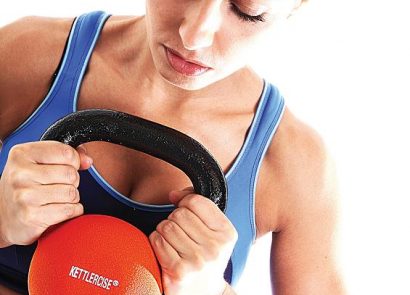Vitamin D is crucial for our health, but are we getting enough? H&W investigates the importance of light and why it may hold the key to more vitality in the winter
Ever noticed that when the nights draw in, your mood can also take somewhat of a gloomy turn as well? You’re not just imagining it. Major depressive disorder affects four times more women than men, which can leave sufferers feeling lethargic and depressed for no obvious reason in the colder months. Saying that, we don’t just bank on vitamin D to give our moods a boost. Being exposed to the outdoors as much as possible is needed to keep our muscles, teeth and bones healthy too, but we hear you – when winter comes around in the UK, only Netflix marathons and cosy nights in will do. Keen to keep that spring in your step? Read on to learn how you can get more light in your life and the benefits you’ll reap from the sunshine vitamin.
Dark days
It’s probably no surprise why we spend more time indoors during this season, and that’s without being in the midst of a global pandemic. Snuggling down in front of the TV with a warming bowl of comfort food just screams winter and sure beats going out for that run you promised yourself you’d do after work. Government guidelines aside, winter can be a dark time (literally) for some people. SAD (Seasonal Affective Disorder) pretty much does what it says on the tin. “The symptoms of major depressive disorder with seasonal variation are significant and are not a case of simply feeling a bit blue,” states Dr Meg Arroll, psychologist for Healthspan (healthspan.co.uk). “The mechanism behind SAD is lack of natural light and its impact on the production of serotonin and melatonin, which regulate mood and circadian rhythm. This can mean finding everyday tasks a struggle, unintentional weight loss or feeling a sense of hopelessness and desperation,” she adds. Her tips for combating the winter blues? Embracing the Scandinavian way of life, natch. “Try to get outside as much as possible in natural light during the colder months. By rejoicing in the invigorating, openair wonders of this time of year, it may help to ameliorate some of the dread of this season, which may be contributing to depressive symptoms during the winter.”
Level up
So, welcoming winter with open arms it is then, but what about supplements? This is something that may have been on your radar for a while but, as Keeley Berry, nutritional expert and product developer at BetterYou (betteryou.com), points out, the plethora of information around vitamin D supplementation has left many of us confused. “There is no one-size-fits-all solution for vitamin D supplementation and Public Health England’s (PHE) recommendation that everyone should supplement 400IU (10mcg) per day is simply not effective. Instead, I recommend 1,000IU (25mcg) of vitamin D for every 25kg of body weight. That way, you can maintain your vitamin D intake for optimum levels. Our DLux 3000 (£8.45, stocked in Boots, Holland & Barrett and all good independent health stores) is an optimum strength vitamin D oral spray, specially formulated to deliver vitamin D through the soft tissue of the mouth for optimal absorption.” It’s said that around a quarter of the population become deficient in vitamin D from around December to March every year. Feeling tired or found yourself complaining about pain in your muscles and joints? You may be lacking in the sunshine vitamin. “Vitamin D deficiency decreases the oxygen consumption rate in skeletal muscle and induces disruption of mitochondrial function,” explains Dr Rachel Byng-Maddick, consultant rheumatologist at The Lister Hospital (hcahealthcare.co.uk). “Therefore, ensuring adequate levels of vitamin D may enhance mitochondrial function and increase your energy levels.”
The best D-fence
You’ve no doubt heard the multiple factors that could increase your risk of catching coronavirus. Namely, your age, whether you have underlying health conditions and where you live can all play a part, with growing evidence to suggest that dwindling vitamin D levels also having an effect. “Lockdown may have adversely affected our vitamin D levels, with fewer hours spent outside, therefore increasing our risk to illnesses and infections,” says Dr Selena Langdon, medical director at Berkshire Aesthetics (berkshireaesthetics.com). “This is even more crucial for those who are overweight or darkskinned, so a supplement can help boost your immune system and also have anti-inflammatory properties.” It appears that a vitamin D deficiency really does discriminate, but why are more people more susceptible to having lower levels than others? “People that spend a lot of time outdoors and lead a healthy lifestyle may not think they are susceptible to a lack of vitamin D, however, our bodies cannot rely on sunlight and diet alone to make enough,” warns Keeley. “Children under five, teenagers and mums-to-be all have an increased need for the vitamin. In addition, a deficiency is more prevalent in people with darker skin due to a natural barrier known as melanin towards the UVB rays needed to penetrate the skin. Melanin competes with the vitamin D receptors in the skin, meaning that darker skin types allow less UVB to enter the skin, and consequently produce less of it.”
All you can eat
More sunlight during the winter months, check. A supplement to boost your levels, sorted. Dr Byng-Maddick also suggests plating up some vitamin-D rich foods to reach the ideal level, as advised by PHE. “Vitamin D is present in some foods, including oily fish, red meat, liver, cheese and egg yolk.
If you’re vegetarian or follow a plant-based diet, It can also be found in some fortified foods, such as breakfast cereals, bread, fat spreads and orange juice.” So there’s light at the end of the tunnel after all. With sufficient levels of vitamin D, it shows promising signs of sure-fire vitality, increased longevity and a reduced risk of infection.






















